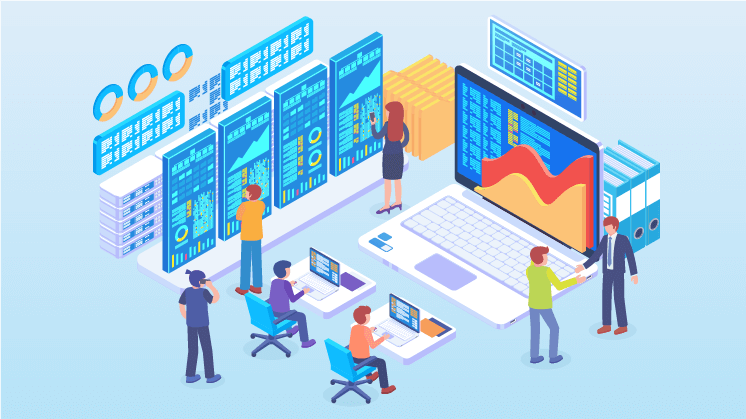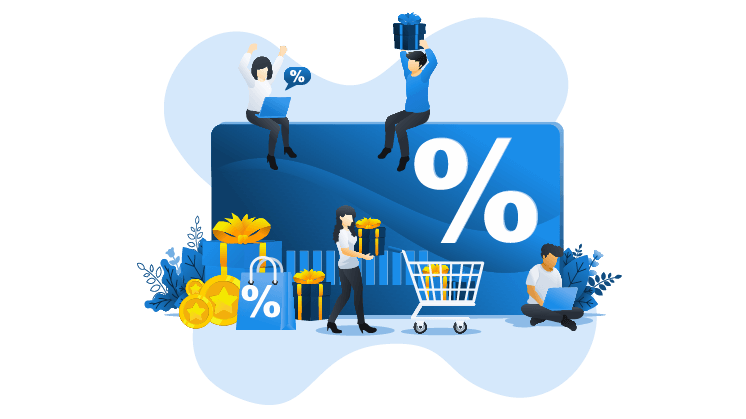Today, customer loyalty programs are considered the topmost strategies to facilitate brands in improving their brand value and customer loyalty tactics. Moreover, in the modern technology landscape, loyalty programs themselves are sometimes powerful enough to give your brand recognition and value.
 According to research done on customer acquisition, it is 25% times more expensive to attain a new customer than to retain an existing one. It is about time that businesses start spending their time identifying how to acquire sustainable customers and understand how and why it is essential to retain the existing ones in the marketplace.
According to research done on customer acquisition, it is 25% times more expensive to attain a new customer than to retain an existing one. It is about time that businesses start spending their time identifying how to acquire sustainable customers and understand how and why it is essential to retain the existing ones in the marketplace.
What are customer loyalty programs and how can they help your business?
Customer Loyalty is the association between a company and the targeted customers. Companies create loyalty programs to find customers who have made regular purchases in the recent past. The company can then choose to reward them with a variety of incentives including discounts or even monetary benefits.
WHY? Loyalty programs are critical to your business’s long-term success and can turn your satisfied customers into delighted brand advocates. It helps increase social proof, word-of-mouth, and customer referrals.
A loyalty program’s sole aspect is to attract the right target customers and build a long-tenured bond with them. According to experts, the prevailing customers spend over 67% more than new customers. In particular, customer loyalty pays off, and customer loyalty programs end up paying for themselves.
Benefits of Customer Loyalty Programs?
The benefits obtained from customer loyalty programs are endless. Below are some of the benefits of starting a customer loyalty program for your business:
- Increased Customers – The primary objective behind the customer loyalty program ideas is to retain customers. A progressively-implemented loyalty program improves overall revenue via actual customer retention strategic techniques.
- Accessing Customer Information – The company’s primary objective is to acquire customer information once the customer has successfully registered themselves with the loyalty program. This helps consumers to improve their profile via intuitive planning and pricing of products or services.
- Reducing Inadequate Customers – The loyalty programs help companies devise clusters for their sustainable customers to identify their adequate and inadequate customers effectively. Using loyalty programs, companies can reward a lot more to their customers while minimizing the disbursement to the inadequate customers.
Building a Customer Loyalty Program
Loyalty programs are an essential part of any business’s success. Although, it is not the case for many agencies. The fundamentals of an effectively driven customer loyalty program are:

– Generates Revenue and Effective Redeeming – It is always better to occupy a simple point system for retail store loyalty programs. Furthermore, the conversions can be simple, intuitive, and comprehensive in revenue and redeeming conversion rates.
– Gamification – Entreprises, SMEs, and businesses can come forward with the latest contests, leveraging a points management system (POS) to implement exciting fun and gaming elements to your loyalty programs. For Example, myCred is a feature-rich plugin that simplifies the overall process of managing loyalty and rewards points systems for loyal customers and WordPress sites.
– Charity and Donations – Loyalty Programs must be tailored in such a way so that consumers can attain flexibility to support legitimate and legal causes that are closely associated with social welfare and humanity. Leading companies that are affiliated with charitable organizations use loyalty programs to reward their donors for their efforts. Donations for WooCommerce is a powerful WordPress extension that provides users the capability to build fundraising campaigns without charging any transaction costs.
How Companies Benefit From Data Analytics to Improve Loyalty Programs?
Today, the Data-driven decision-making approach has become a pivotal element that empowers growth at a rapid-pace business. Although, several businesses either consist of a full-time analytics team or an affiliate partner team assisting them in providing actionable-insights with data usage, the key focus is to empower customer retention strategies and loyalty programs. However, the following are some critical practices that loyalty programs can adapt to improve and consistently generate new ideas and result-driven marketing tactics to drive customer experiences to the next level, such as leveraging customer feedback platforms to gain valuable insights directly from customers.
 A. Monitoring and Measurement of Data
A. Monitoring and Measurement of Data
Nowadays, businesses can easily interact with the target consumers using an entire collection of platforms, including emails, websites, mobile apps, questionnaires, surveys, social media platforms, and vice versa.
It is an essential aspect that high-quality information is acquired via multiple platforms. Any specific data that is considered informative and businesses’ sole aim is to analyze must be tracked and effectively stored. For Example, consumers’ demographics include name, age, gender, nationality, and relevant details.
B. Practical Experimentations
Typically, experimentation constitutes setting up randomly targeted and focus groups on measuring the essence of the given observation. Seamlessly, there shouldn’t be any selection bias among the bias that helps minimize the impact of observed and unobserved variables and cause-to-effect relationships that can be practically experimented with a general aptitude to get engaged in workflows.
The most reliable technique to examine the effect of various practical activities and understanding of the consumer behavior, although they usually cost more than an observational study and takes longer to implement in a result-driven manner.
C. Personalization
After the observational and experimental research patterns are precisely contributed, the businesses understand the end-user. Nowadays, the business caters to each user’s requirements and personalizes the loyalty program’s features based on user preferences and characteristics. The personalization patterns can also be completed by directly communicating with the customer via surveys and progressively taking customer feedback.
It’s a pivotal element to collect a sufficient amount of data to create contextual data around customer behavior. Gather information from multiple sources that include your personalized data and third-party data sources. Users can easily collect these key indicators consisting of demographic information, existence, buy intent, life period data, and your granulated personalization engages customers.
D. Re-Engages Preceding Customers
In particular, every marketer’s essence is to collect overall customers who would personalize their brands. However, most of the brands constitute unique and personalized loyalty programs consisting of old customers open at their offers to prompt their brand identity to the next level.
According to a recent study, 80% of unloyal customers who aren’t longer loyal to a brand say that the company would have done something to retain them. Hence, brands with robust loyalty strategy enabled in-depth customer data or preferences are critical parameters to understanding your target customers and prompting users to take action. By considering such insights, brands fuel programs that increase revenue, sales, earn potential customers, improve brand reputation and win immense fans’ immense popularity.
Conclusion
To sum up, companies effectively build loyalty programs to present integrated multi-channel rewards personalized to the particular individual. Hence, the payoffs for such enterprises can be improved, as a sustainable generated via the loyalty efforts discussed on social media platforms and amongst the loyalty member colleagues that helps users drive revenue growth.
 A. Monitoring and Measurement of Data
A. Monitoring and Measurement of Data